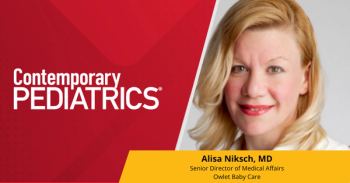
Early milk feeds beneficial for preterm babies
Starting enteral feeding early in preterm infants who are small for their age could result in earlier achievement of full enteral feeding without increasing the risk of necrotizing enterocolitis.
Starting enteral feeding early in preterm infants who are small for their age could result in earlier achievement of full enteral feeding without increasing the risk of necrotizing enterocolitis (
Because growth-restricted preterm infants are at high risk for NEC, introduction of enteral milk feeding is frequently delayed. Instead, these infants are kept in special neonatal units and fed fluids and nutrients through an intravenous drip. There is little evidence, however, to support this practice.
In the largest
Most of the babies received their mother’s breast milk rather than donor milk or formula. The feeds were gradually increased at the same rate for both groups.
Full enteral feeding was achieved at an earlier age in the babies in the early group than in the late group (median age, 18 vs 21 days). The number of infants with severe bowel problems, including NEC, was similar in the 2 groups (18% in the early group vs 15% in the late group). Also, the duration of parenteral feeding was shorter, cholestatic jaundice was less common, and weight gain was better in the early group.
According to the researchers, the findings suggest high-risk preterm infants would generally benefit from starting milk feeds within the first 24 to 48 hours after birth. This could result in babies being able to leave specialist care earlier.
Newsletter
Access practical, evidence-based guidance to support better care for our youngest patients. Join our email list for the latest clinical updates.








